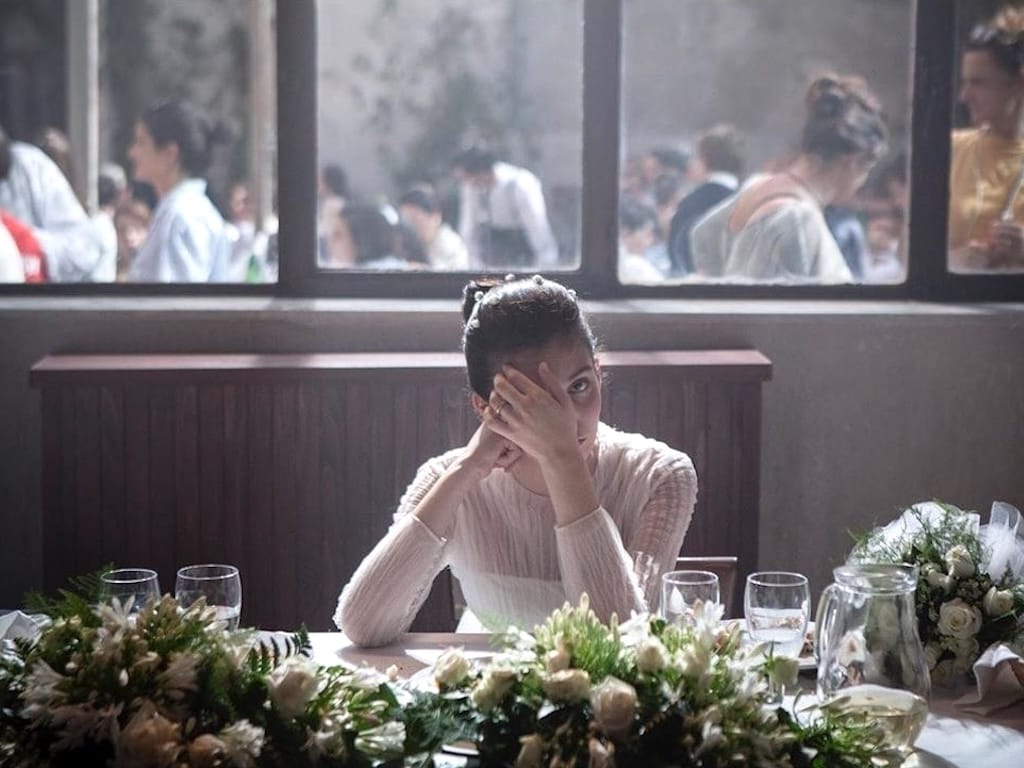Quick summary:
In "The Fiancés," Lila embraces the idea of becoming Mrs. Carracci, proudly declaring that she and Stefano have decided to "rise above the Solaras." By "The Promise," all delusions of this Michelle Obama-style high road are shattered. The first crack occurs when Silvio Solara becomes the wedding speech master. Stefano says his involvement is crucial for the success of the shoe business and even Elena argues it's not a big deal. While Lila eventually moves past it, her inability to influence Stefano's decision-making gives her a bleak preview into life as a wife. She'd love to be in Elena's position, writing articles and making their old teacher proud, but instead she's gearing up for a future of subordination. Somehow, she manages to compartmentalize this looming sense of dread and enjoy her wedding day until Marcello Solara, the one person Stefano promised would not make an appearance, comes waltzing through the door wearing her shoes. It's a power move to end all power moves and anyone with half a brain knows it's not going to end well for Lila.
Corresponding book chapters:
"The Promise" goes from Chapter 51 to the end of the first novel. Dedicating almost an entire episode to the wedding is a smart choice since there are several pieces to set up before it all falls apart in the end.
Notable choice (complimentary):
The wedding is shot exclusively on Super 8 and although the reception switches back to the standard digital language of the show, we see meta glimpses of the videographer at work. While the events from the wedding footage technically happened before the reception, what we're shown is an archive of the past from the perspective of the future. The viewer watches as if it's happening in real time but days, if not weeks, must have passed before the film was presented to the newlyweds. This gives the wedding a ghostly aura and calls into question the manufactured quality of what we are shown. The Super 8 inclusion also reminds us of the artifice of art. We are watching a tv show based on a book, presented as if it's the creation of one of its fictional characters. It's easy to forget these layers of authorship and perspective while watching the show as opposed to reading the novel, so I appreciate choices like this that bring them to the forefront.
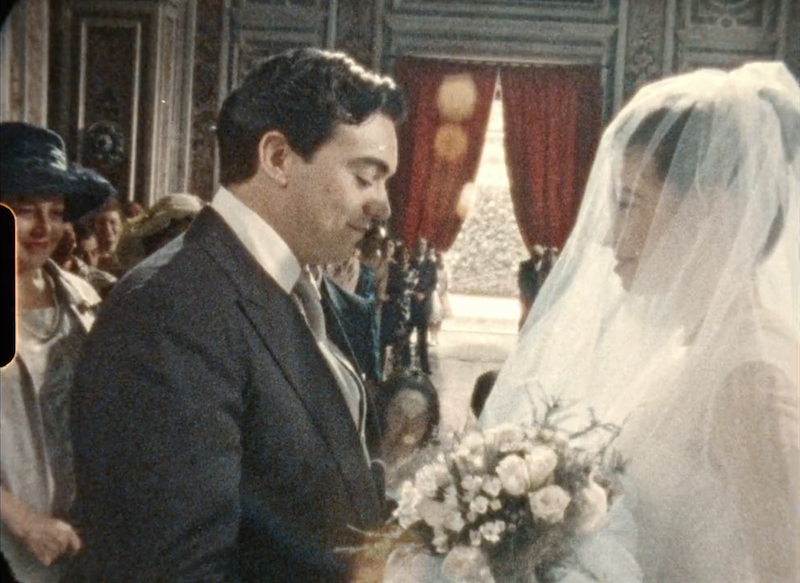
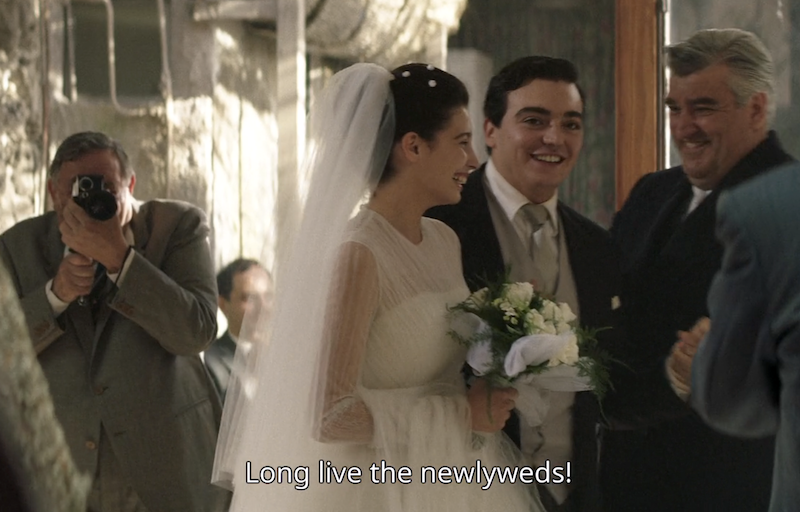
In the novel, Elena is the one who persuades Lila to include the film in Super 8.
Notable choice (derogatory):
The bath scene is one of the most erotically charged in all four of the novels and unfortunately, too much complexity is lost on screen. The sepia tones give it a hazy, 'final moment of intimacy between two friends before their paths diverge' vibe, but where's the queer desire? (And by queer, I don't necessarily mean that Lila and Elena want to fuck each other, just that the intensity of their relationship transcends societal norms.) There's one shot where Lila slowly stands and her tits, then bush, are directly at Elena's eye level. Elena stares blankly before raising her eyes to look at her friend's face. When Lila meets them, her gaze is inscrutable. Despite Margherita Mazzucco and Gaia Girace's talent, it's giving vague. I don't get the sense that as Elena observes Lila's naked body, she's imagining her getting railed by Stefano later that night and longing for a parallel experience. Ferrante's words are so sensual and evocative that there's no way to properly translate them.
I imagined her naked as she was at that moment, entwined with her husband, in the bed in the new house, while the train clattered under their windows and his violent flesh entered her with a sharp blow, like the cork pushed by the palm into the neck of a wine bottle. And it suddenly seemed to me that the only remedy against the pain I was feeling, that I would feel, was to find a corner secluded enough so that Antonio could do to me, at the same time, the exact same thing.
"What you do, I do": sex edition.
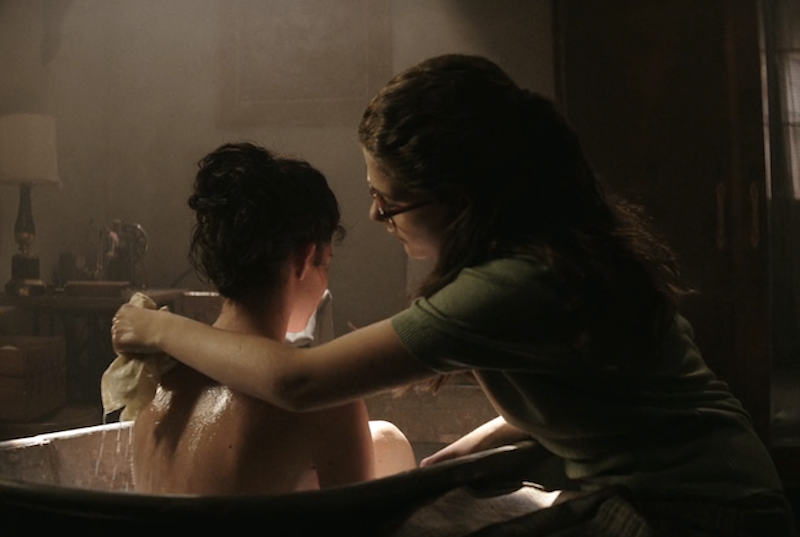
Thoughts:
This episode is a slow motion car wreck that ends in a black pit of despair. Lila wants to believe she's figured out a way to evade her worst fate, but knows deep down how fucked she is and can't stop the negative emotions from arising. As Elena sits in class, half listening to the religion teacher, her voiceover laments, "Lila really cared about Stefano, I didn't care about Antonio. This made me so angry." Because we never actually get Lila's perspective, it's unclear if Elena's interpretation is correct. Maybe Lila never gave a damn about Stefano and was only trying to make the best of an impossibly shitty situation. She told herself whatever she needed to hear to escape Marcello and kept the fantasy going until her impending wedding made reality impossible to ignore. I'm keen to believe this version over Elena's considering how quickly Lila's panic sets in leading up to the wedding.
As is often the case, Elena's academic prowess forces Lila to consider her own lost opportunities, which leads to a downward spiral. After getting kicked out of class for telling her religion teacher that belief in God is for idiots, Elena runs into Nino, who encourages her to write an article about the conflict for a local magazine. Lila reluctantly agrees to edit Elena's piece, telling her it's a one-time-only deal "because it hurts me." In the following dress shopping scene, Lila's hurt manifests in the form of a critical comment about Elena's influence over Pinuccia and Donna Maria. When Lila gets in her head, she's unable to give Elena the benefit of the doubt and instead, sees all of her actions as contemptuous. (For those watching the current season of "RuPaul's Drag Race": imagine the Lexi Love/Suzie Toot dynamic.) To Lila's credit, the blame never lies with Elena for long; she's self-aware enough to understand that her negativity is fueled by insecurity. It's not Elena's fault that she's the "good" one with a bright future and Lila's the "bad" one destined for hardship.
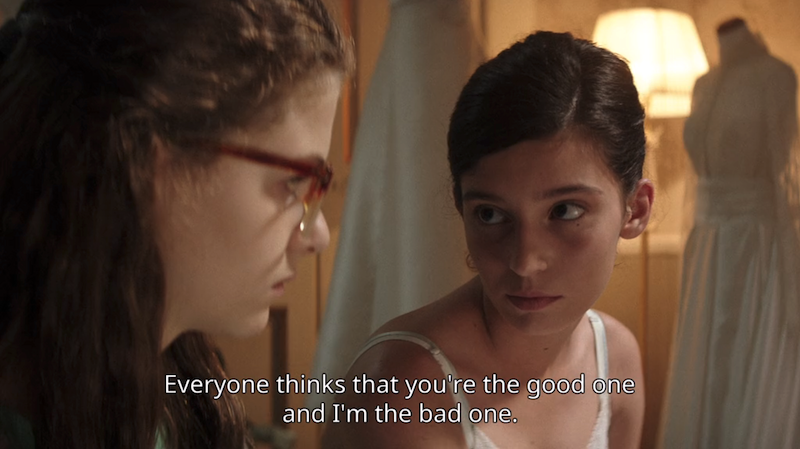
This all happens before Silvio Solara worms his way into the wedding as speech master, so Lila is already in a precarious emotional state when that news drops. Going into the relationship with Stefano, her only goal was to avoid getting ensnared in the Solaras' web. With this new turn of events, what she most feared has come true and everything she's thrown away is for naught. Stefano claims Silvio's involvement is necessary for the success of the shoe business, which is probably true but no less disappointing. As Lila wordlessly lies in bed, her family and Stefano scream at her from the other side of a locked door that she refuses to open until Elena arrives. Using the same gift of persuasion exhibited at the dress shop, Elena reminds Lila of the fantasy she once believed in, doing her damndest to build it back up again. There are no other options, so all Lila can do is choose to believe Stefano when he enters the room with those symbolic shoes, making promises he has no power/intention to keep.
The harshest pre-wedding cruelty Lila endures is Maestra Oliviero's rejection. Not only does Oliviero refuse Lila's invitation, she hits her with this Mariah Carey-esque third degree burn:
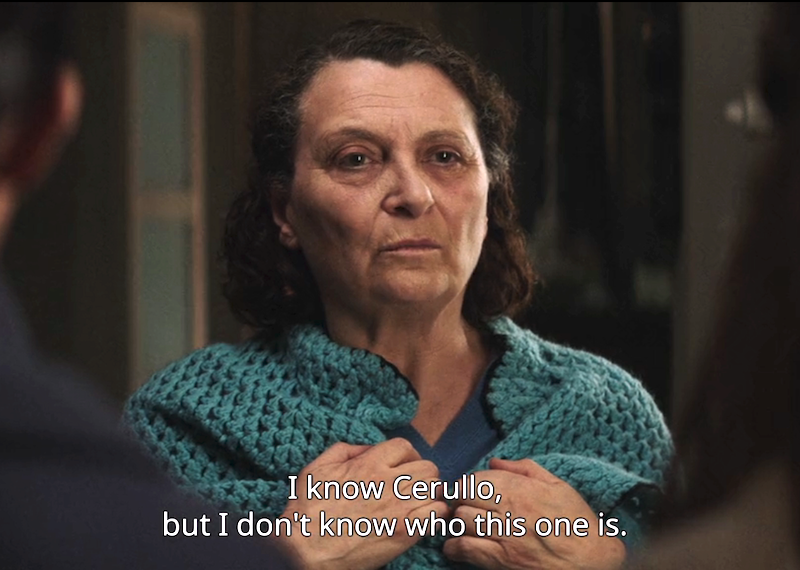
It's unfathomable to me that an adult woman can't conceptualize how little control young women have in a patriarchal society. Does Oliviero want Lila to kill herself instead of marrying Stefano? There is no viable alternative, so her haughty attitude serves zero purpose aside from wounding someone who's already suffering. The morning of the wedding, as Elena helps her prepare, all Lila can think about is her former teacher's words. If she can't succeed herself, she'll use Elena as her avatar, giving her every advantage the title of Mrs. Stefano Carracci affords. This is a noble idea that would likely result in bitterness for even the most selfless person. It's like when parents use children to fulfill their unachieved goals and everyone ends up with (more) mental illness.
The actual wedding is everything you could possibly ask for in an on-screen depiction. The entire neighborhood is there, complaining about the wine delay as the band warms up in the background. Immacolata is obsessed with making sure Elena isn't "ruined by a mechanic with a crazy mother," a job that becomes easier once Nino slinks in with the rumpled swagger of Timothée Chalamet. Fabio Cianchetti's cinematography perfectly captures the social dynamics of a lively party where everyone is hyper aware of being observed. There's a mix of full room pans, isolated character closeups, and shared glances that communicate volumes. In one poignant moment, Lila and Elena look at each other with so much joy and admiration that everyone else in the room completely disappears.
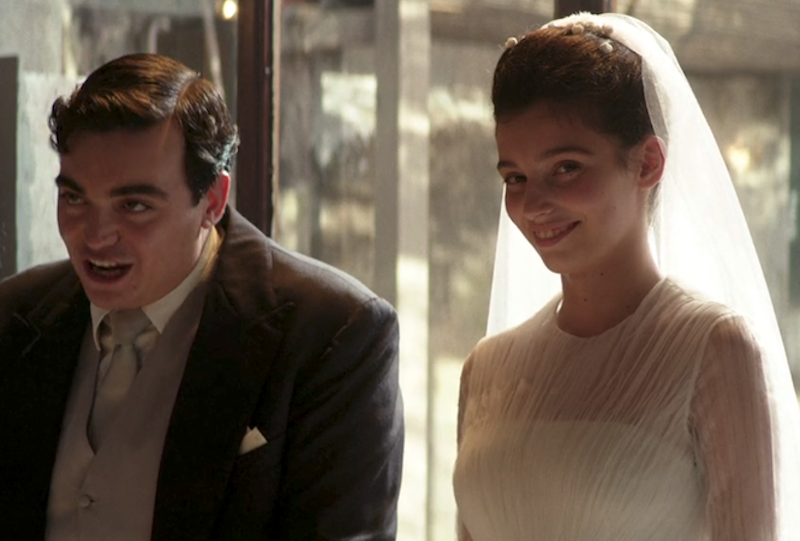
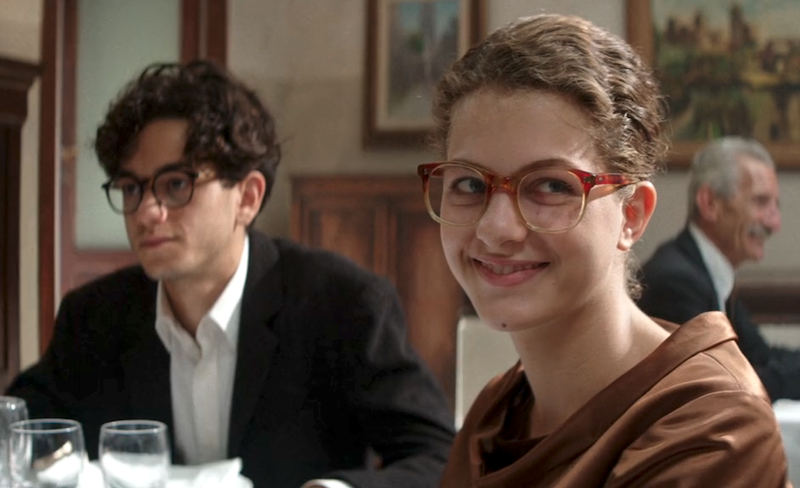
The men next to them? Irrelevant obstacles.
The bond between Lila and Elena makes you wonder what their lives might look like if men weren't part of the equation. Over their long friendship, they go through periods of jealousy, resentment, and even flat-out hatred, but they're always there for each other. If not for male interference, they could have escaped the plebs together and achieved greatness. At different points throughout the series, it's easy to label one of them (usually Lila) off as the villain who's responsible for bringing the other one down; in actuality, they are both victims of circumstance. Lila marries someone who, by the end of the episode, is cemented as a spineless worm with a hard-on for betrayal. Elena helplessly watches Stefano's treachery unfold, wondering how she'll keep going after the most brilliant person she knows has just been swiftly defeated. If Lila can't escape, what makes Elena think she will? And if she does, how will she live with the survivor's guilt? Won't it follow her around, impacting her life in ways that no therapist can unravel? Stay tuned for S2 when shit becomes even more depressingly convoluted!
Random observations:
- Nothing makes me angrier than listening to Fernando Cerullo diminish Lila's accomplishments by derogatorily referring to her as a "little girl." If not for that "little girl," where the fuck would he be? Toiling away in the shoe shop until his death with barely anything to show for it. Go fall in a hole.
- Lila's wedding dress was designed by Pierpaolo Piccioli, former creative director for Valentino. The Valentino label was founded in 1960 (and Lila's wedding is in 1961), so I'd guess the dress takes inspiration from something archival, but it's hard to find pictures of early collections (and believe me, I scrolled through this IG for a long time). The most famous Valentino dress from the 1960s is probably Jackie Kennedy's from her wedding to Aristotle Onassis in 1968.
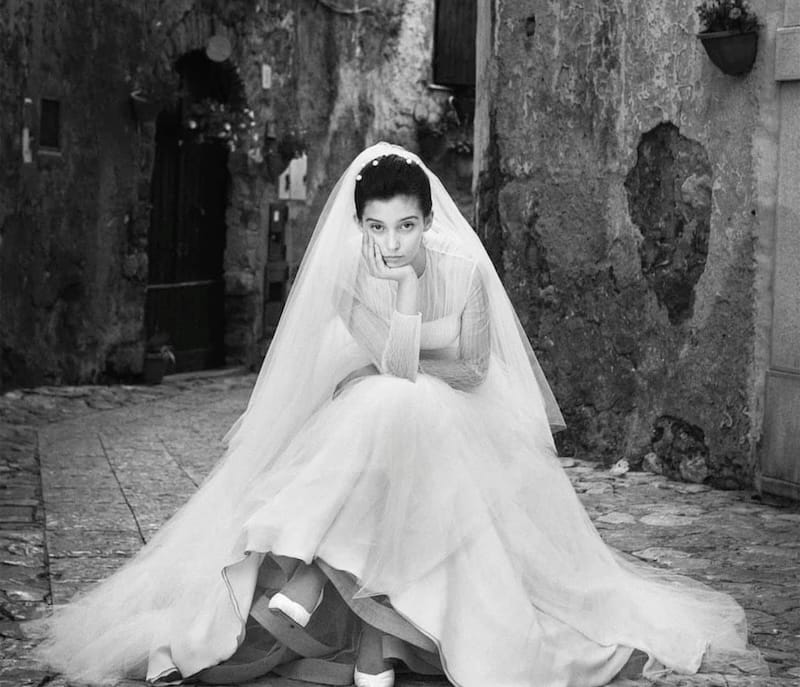
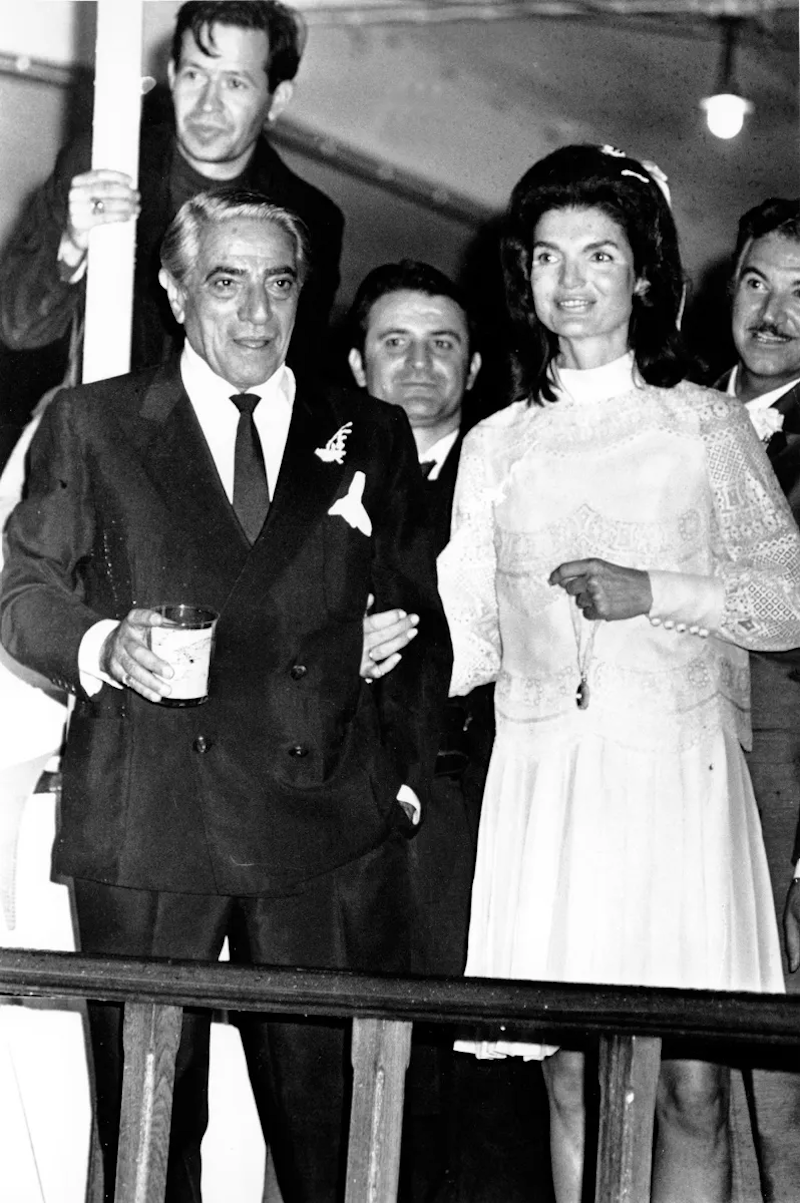
Lila's dress is chic and timeless, whereas Jackie's is more suitable for a first communion.
- In the book, Antonio's situation is even more tragic. He takes on debt for the wedding because he sees Elena's invitation as a sign that she wants to make the relationship official. In reality, she just wants an escort to quell her anxieties about looking desperate/unattractive.
- Nino seems like the kind of person who leaves a party as soon as he's smoked his penultimate cigarette. (Gotta save one for the walk home.)
- "Novels don't serve a purpose," says Nino. Minutes later, he praises Moravia's "A Time of Indifference." Ok, Lucille Bluth.
- I would just like to point out that Elena's parents are supposed to be 35 (mom) and 39 (dad). All tea, no shade: yikes.
- “The dreams in my head have ended up under my feet” is something Carrie Bradshaw would write in her column after getting Tatum O'Neal to buy her replacement Manolos.
- The real story behind Elena's unpublished article is revealed in S4 and spoiler alert: it will piss you off.

